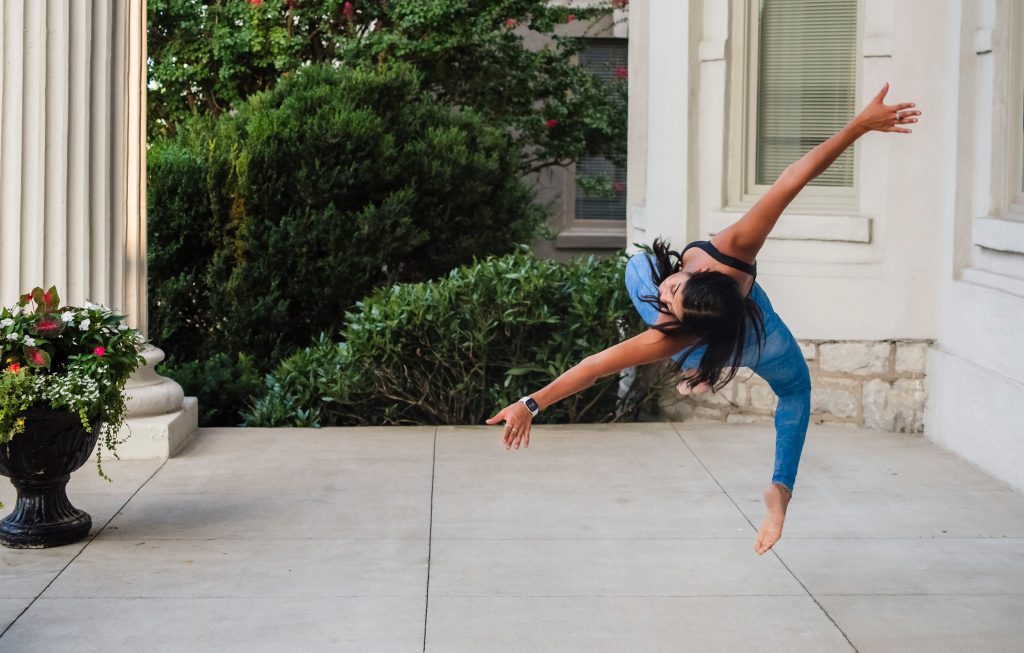Sisters Astha Sinha and Ayushi Sinha joined the 2021 Female Founder Track with Yustha Yoga, which makes South Asian inspired athleisure. In this interview, which has been edited for clarity, they share how they created the idea of the startup, conducted early user interviews, and tested pricing.
How did you create the idea of a brand for Indian athleisure wear?
Astha Sinha: From the get go, it was a conversation in our living room talking about the misappropriation of Indian culture and designs. For example, you think about boho tops and Indian henna designs. Culture wise, we were talking about how the fundamentals of yoga sometimes get lost. In yoga class, you’re trying to be fit or flexible, but that isn’t the point. The point of yoga is a way of life. It’s interesting to talk about our frustration and how companies capitalize on it but don’t actually talk about the roots of it.
We have the roots in our closet from our mom’s saree and our grandparent’s stories, so we really wanted to bring light to that and thought of a bunch of different ideas. We did Asian athleisure to pay homage to the roots of yoga by what you’re wearing.
When you’re starting a company, make sure the mission is at least something you really care about because when a partnership goes flat or Amazon is not working out, you think about why you’re doing it, and it truly can get you through a lot. There’s that feeling that I just want to give up on a certain part of it, but I remember why it’s so important to me and to us. That’s what makes me just try again.

How did you conduct your early user interviews?
Ayushi Sinha: Oh, we definitely interviewed people. We spoke to a lot of South Asians who were young and like us, either college students or recent grads. They cared about the cultural roots of yoga. For our second group, we talked to a bunch of athletic moms 55 and older. They had a higher income to buy but were interested in different prints. These were demographics other than Asians who wanted to wear something to the gym that would make them feel good. Finally, we talked to a lot of young men about wearing this every day to be seen. We broke it down not just by demographics but by their motivations as well.
I emailed 3000 people and any person who replied, I talked to them. That’s biased a little bit because only people who replied talked to us. We came up with this idea at the end of March, and we talked to so many people – every single one of our family members, and we probably have 60 on the waitlist. Whenever I see a family friend that I haven’t seen in a while, I talk about starting our company. It’s more than a survey about yes to this or that design; it’s a conversation.
What did you think about pricing?
Ayushi Sinha: I got a lot of diverse feedback about the price. On one hand, I had a lot of people tell me it’s all about the brand. If you make a strong brand, you can charge anything. A lot of people saw what we were building and said these were leggings. Other people our age were like, “Oh, that’s too expensive,” but I’m like “You know you’re wearing Lululemons. This is half the price.” What was unexpected was how much the brand mattered.
I don’t find it helpful at all to ask “How much would you pay for these?” because no one’s gonna tell you the truth. I would ask them: What are you wearing? Where’d you get that from? What brands do you buy? How often do you buy stuff? Those questions uncovered the phenomenon that people our age buy in bulks. We also found that young people are more likely to get their moms to buy for them. This was so tricky because I needed to market it both to their moms and daughters. There’s also another sort of tension between moms buying for their daughters, and moms buying for themselves and their daughters.
Astha Sinha: Another concern was the cultural appropriation that could have come up. A lot of people our age are just trying to be super careful about that. We talked to the founder of an oatmeal brand. She told us that she started a taro oatmeal brand, but to cater to the Western market, also built a strawberry and cream version so it’s more inclusive. We looked out to other companies that had that similar aspect of the cultural part to create a product that would also appeal to people who are of South Asian heritage.

How do you come up with designs for your clothes?
Astha Sinha: Doing little henna designs has always been my thing but then I looked into prints in my mom’s closet. I looked at her saris and the designs and how the embroidery is just so beautiful. We wanted it to be versatile so you can wear it to the grocery store but also under Indian clothes. To come up with the idea, I looked at a bunch of different designs. It’s not just the 10-20 pictures we have on our website. I’m continuing to design for dance teams, and it’s a lot of trial and error. I also ask users for feedback because real people buy our product.
What’s it like starting a company with a sibling?
Ayushi Sinha: What’s lovely about starting a company with a sibling is that you know them so well. We recently had a last minute meeting. Astha is super planned. I told her, “I know this is last minute for you, but these are the things that we can do to make it less stressful.” She hopped on the call.
I’m also putting things on my credit card, which isn’t financially responsible, so Astha gave me good advice: Why don’t we ask people to give us a deposit so we don’t put in a $1000 credit? It’s great to be sisters because you know what stresses them out and anticipates the need.
Astha Sinha: I can ask her for anything, and we can get over most things because we’re siblings. We fight all the time. But it’s waves and never actually a roadblock. Even when I have a project with friends being supportive, it gets stressed. As sisters, we always want to take care of each other. How well we know each other is so much more helpful than it could ever be stressful.
Written by DRF head of content, Anne Wen. Reach her at annewen@dormroomfund.com. Get more news and updates on Twitter and Medium. Want more DRF content or have suggestions? Subscribe to our newsletter or email our head of content at annewen@dormroomfund.com. Ready to take your startup to the next level? Apply here for an investment from Dorm Room Fund. Until next time! 🚀
